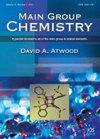基于1,3,5-三嗪环的新型富氮高聚物的制备与表征
IF 1
4区 化学
Q3 CHEMISTRY, MULTIDISCIPLINARY
引用次数: 0
摘要
最近,对新的可再生和可持续聚合物的需求,以及它们作为生产高能材料的前体的使用,已经成为一个流行和新兴的研究领域。本文采用标准工艺合成了以1,3,5-三嗪环为基础的新型富氮高聚物。最初创建四个单体:4,6-dichloro-N——(4-chlorophenyl) 1、3,5-triazine-2-amine (A), 1, 1”bis (4 6-dichloro-1 5-triazine-2-yl) 1 H, 1 'h-5, 5 ' -bitetrazole (B), 2, 4, 6-trihydrazinyl-1, 3, 5-triazine (C), N - (4-chlorophenyl) 4, 6-dihydrazinyl-1, 3, 5-triazin-2-amine (D)在第二步中,七个小说叫CHTA聚合物,TBT, TBTH,全面禁止核试验条约》,年中,CTC, TCT是通过加聚合反应的单体合成。红外光谱对所形成的富氮聚合物进行了表征。TGA测量用于研究物质的热稳定性。此外,利用SEM和1HNMR对化合物进行了表征。热分析结果表明,TBT、CTC和TCT的稳定性低于其他富氮聚合物。CHTA、TBT、TBTH、CTBT、THT、CTC和TCT的反应收率分别为73%、92%、67%、80%、84%、72%和74%。本文章由计算机程序翻译,如有差异,请以英文原文为准。
Preparation and characterization of novel energetic nitrogen-rich polymers based on 1,3,5-triazine rings
Recently, the demand for new renewable and sustainable polymers, as well as their use as precursors to produce energetic materials, has emerged as a popular and burgeoning area of study. In this study, novel energetic nitrogen-rich polymers based on the 1,3,5-triazine ring were synthesized utilizing standard techniques. Four monomers were created initially: 4,6-dichloro-N-(4-chlorophenyl)-1,3,5-triazine-2-amine (A), 1,1’-bis(4,6-dichloro-1,3,5-triazine-2-yl)-1 H,1’H-5,5’-bitetrazole (B), 2,4,6-trihydrazinyl-1,3,5-triazine (C), N-(4-chlorophenyl)-4,6-dihydrazinyl-1,3,5-triazin-2-amine (D) In the second step, seven novel polymers named CHTA, TBT, TBTH, CTBT, THT, CTC, and TCT were synthesized via polyaddition reactions with monomers. Infra-red spectroscopy was used to characterize the nitrogen-rich polymers that were formed (IR). TGA measurements were utilized to investigate the thermal stability of substances. In addition, SEM and 1HNMR were utilized to describe the compounds. The results of thermal analysis indicate that TBT, CTC, and TCT are less stable than other nitrogen-rich polymers. The reaction yield for synthesized energetic polymer were 73%, 92%, 67%, 80%, 84%, 72%and 74%for CHTA, TBT, TBTH, CTBT, THT, CTC and TCT respectively.
求助全文
通过发布文献求助,成功后即可免费获取论文全文。
去求助
来源期刊

Main Group Chemistry
化学-化学综合
CiteScore
2.00
自引率
26.70%
发文量
65
审稿时长
>12 weeks
期刊介绍:
Main Group Chemistry is intended to be a primary resource for all chemistry, engineering, biological, and materials researchers in both academia and in industry with an interest in the elements from the groups 1, 2, 12–18, lanthanides and actinides. The journal is committed to maintaining a high standard for its publications. This will be ensured by a rigorous peer-review process with most articles being reviewed by at least one editorial board member. Additionally, all manuscripts will be proofread and corrected by a dedicated copy editor located at the University of Kentucky.
 求助内容:
求助内容: 应助结果提醒方式:
应助结果提醒方式:


